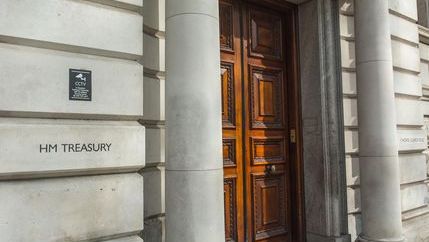
It is vital that agents correctly apply for and maintain an up-to-date registration with HMRC, and whilst we actively advocate for more precise guidelines and understand the complexities of the current process, it's crucial that agents understand the severity of the consequences of failure to register.
The penalties for non-compliance are significant and can have a lasting impact. Agents could face a prison sentence of up to two years or an unlimited fine.
Propertymark provides training and resources to help members understand and comply with their legal obligations.
Who needs to register?
High Value Dealers (HVDs): Any business or sole trader that accepts or makes high-value cash payments of 10,000 euros or more (or the equivalent in any currency) in exchange for goods. This includes payments made in notes, coins, or traveller’s cheques. It also applies when a customer deposits cash directly into a bank account or pays via a third party.
This includes single cash payments of 10,000 euros or more for goods, several cash payments for a single transaction totalling 10,000 euros or more (including instalments or payments on account), and cash payments totalling 10,000 euros or more that appear to be broken down into smaller amounts to avoid the high-value payment limit.
Businesses Dealing in Goods: This includes agents or auctioneers who do not own the goods, transactions where the goods do not change ownership (e.g., sale or return), and transactions involving goods and services where the open market value of the goods is 10,000 euros or more.
Art market participants: A firm or sole practitioner who ‘by way of business’ trades in, or acts as an intermediary in, the buying or selling of works of art where the transaction value (or a series of linked transactions) is 10,000 euros or more.
Download our AML guide for auctioneers →
Letting Agency Businesses (LABs): A firm or sole practitioner who, or whose employees, carry out letting agency work when an agreement is concluded for the letting of land for a term of a month or more, and at a rent which, during at least part of the term, is or is equivalent to a monthly rent of 10,000 euros or more. This applies to both residential and commercial properties.
LABs must register with HMRC for anti-money laundering supervision if they handle client money, including fees, deposits, and rent, and if their rental activity exceeds the threshold.
Download our AML guide for letting agents →
Estate Agency Businesses (EABs): A firm or sole practitioner that carries out estate agency work as defined by the Estate Agents Act 1979. This includes UK-based EABs dealing with overseas property and EABs based abroad if their customer is based in the UK.
Download our AML guide for sales agents →
Legal requirements
The Money Laundering Regulations requires agencies to have procedures to anticipate and prevent money laundering. This reduces the risk that criminals may exploit businesses for financial crime.
Steps agents must take include:
- Develop a written, up-to-date risk assessment of the location operating in, customers and the value of transactions undertaking
- A written policy statement and procedures to show how the business will manage the risks of money laundering
- Train and support staff to understand and implement these policies
- Ensure procedures and audit processes are applied to all branches in or outside the UK
- Appoint a nominated officer (Money Laundering Reporting Officer - MLRO) to report suspicious activity to the National Crime Agency (NCA) and a Deputy Money Laundering Reporting Officer
- Ensure suitable control measures are in place
There is a lot of guidance and support to help agents and business owners across the different sectors comply and set up the necessary procedures.
Read HMRC guidance for estate and letting agents →
Read HMRC guidance for high value dealers →
Read HMRC guidance for art market participants →
Download AML compliance checklist →
How Propertymark can help
Propertymark is dedicated to supporting its members in achieving and maintaining compliance with money laundering regulations, and we have a wealth of resources and comprehensive training, to guide agents through best practices and ensure knowledge and tools to meet AML obligations. We aim to empower our members to navigate AML regulations confidently.
Our Compliance audit support service combines a friendly audit service with 1:1 advice, ensuring your agency can navigate complex government regulations, avoid expensive fines that cost tens of thousands of pounds, and protect you against uncertainty.








